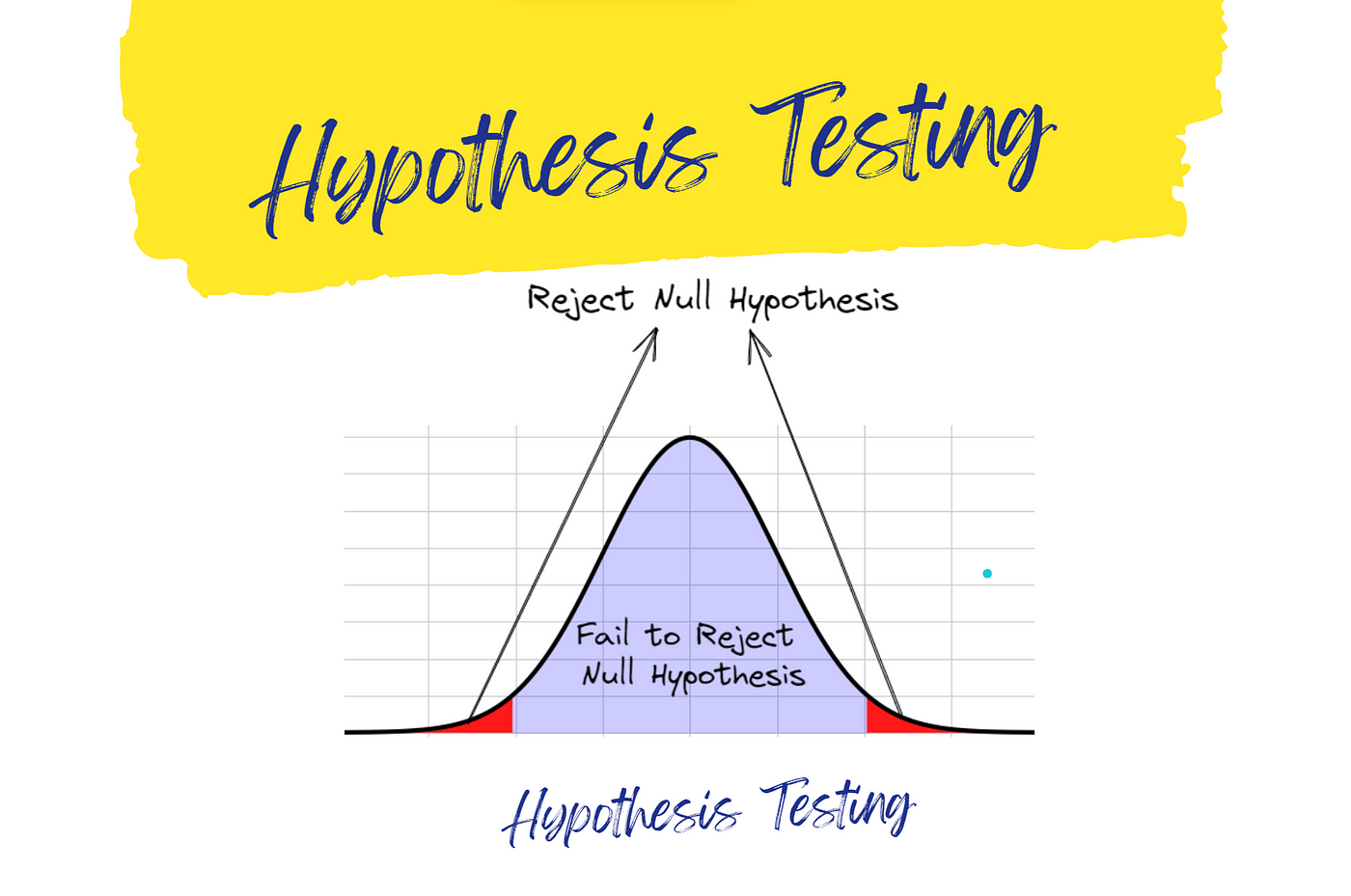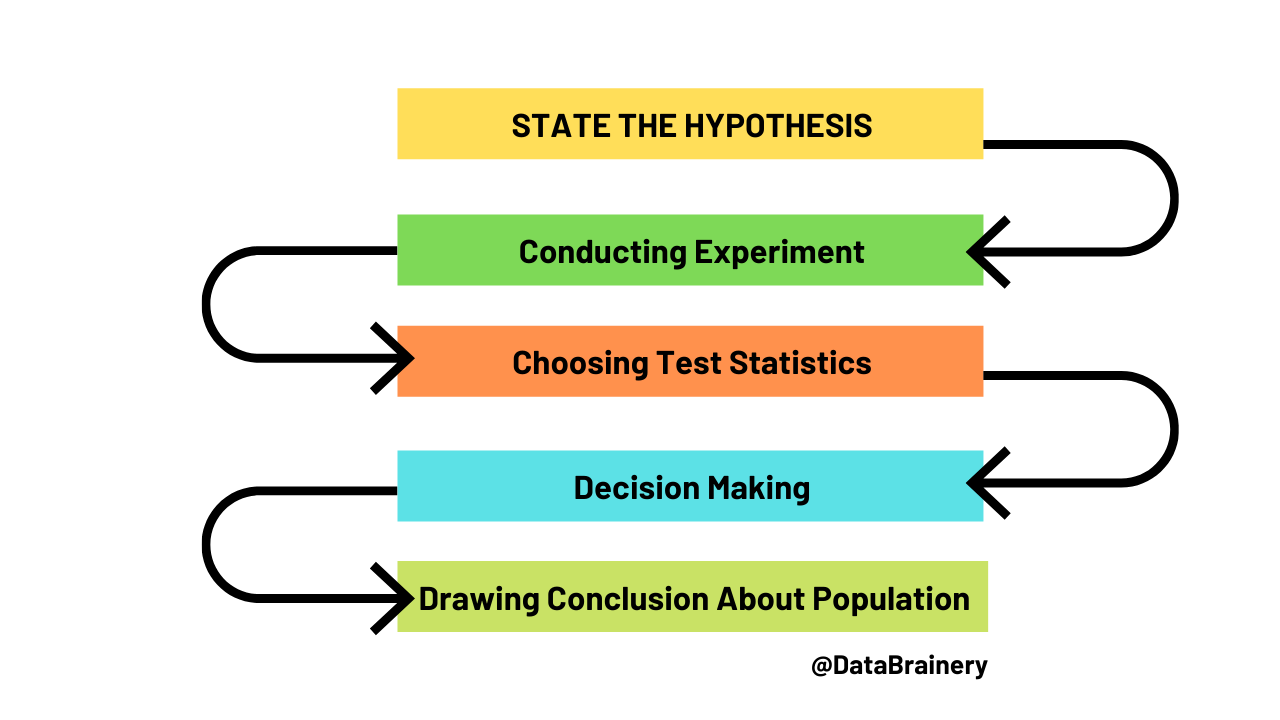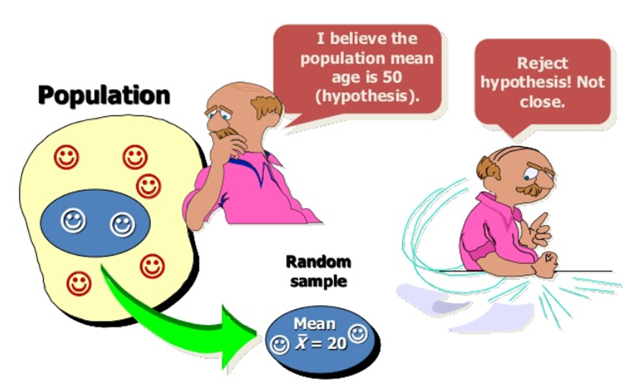From Assumption to Conclusion: The Role of Hypothesis Testing in Data Analytics
 Shrey Dikshant
Shrey DikshantTable of contents
Introduction
In the realm of data analytics, making informed decisions based on data is paramount. One of the key techniques that enable data analysts to draw meaningful conclusions from data is hypothesis testing. This statistical method helps analysts to determine the validity of assumptions and make data-driven decisions with confidence. In this blog, we will explore what hypothesis testing is, its importance in data analytics, and how it is applied in real-world scenarios.

What is Hypothesis Testing?
Hypothesis testing is a statistical method used to make inferences about a population based on a sample. It involves formulating two competing hypotheses: the null hypothesis (H0) and the alternative hypothesis (H1). The null hypothesis represents a statement of no effect or no difference, while the alternative hypothesis represents the opposite, indicating some effect or difference.
The goal of hypothesis testing is to determine whether there is enough evidence in the sample data to reject the null hypothesis in favor of the alternative hypothesis.
The Steps in Hypothesis Testing
Formulate Hypotheses: Define the null and alternative hypotheses.
Choose Significance Level: Select a significance level (alpha), typically 0.05, which represents the probability of rejecting the null hypothesis when it is true.
Select Test Statistic: Choose an appropriate test statistic based on the data and the hypotheses. Common test statistics include the t-test, chi-square test, and ANOVA.
Calculate Test Statistic and P-value: Compute the test statistic from the sample data and determine the p-value, which indicates the probability of observing the test results under the null hypothesis.
Make a Decision: Compare the p-value with the significance level. If the p-value is less than or equal to the significance level, reject the null hypothesis. Otherwise, do not reject the null hypothesis.

Importance of Hypothesis Testing in Data Analytics
Objective Decision Making: Hypothesis testing provides a structured framework for making objective decisions based on data. It helps analysts avoid biases and make conclusions supported by statistical evidence.
Validation of Assumptions: Before implementing any strategy or making business decisions, it's crucial to validate underlying assumptions. Hypothesis testing helps in verifying these assumptions, ensuring that decisions are based on solid foundations.
Identifying Significant Effects: In data analytics, it's essential to identify which factors have a significant impact on the outcomes. Hypothesis testing helps in determining whether the observed effects are statistically significant or just due to random chance.
Optimizing Processes: By testing different hypotheses, analysts can optimize processes, products, or services. For example, A/B testing in marketing relies heavily on hypothesis testing to determine which version of a campaign performs better.

Real-Life Applications of Hypothesis Testing
Marketing: A/B testing is a common practice in marketing where two versions of a webpage or advertisement are compared. Hypothesis testing helps determine which version performs better in terms of conversion rates or user engagement.
Healthcare: In clinical trials, hypothesis testing is used to evaluate the effectiveness of new treatments or drugs. Researchers test whether the new treatment has a significant effect compared to a placebo or existing treatment.
Manufacturing: Hypothesis testing is used to monitor and improve production processes. For example, quality control teams test whether changes in the manufacturing process lead to a reduction in defect rates.
Finance: Financial analysts use hypothesis testing to evaluate investment strategies, test market theories, and analyze risk factors.

Subscribe to my newsletter
Read articles from Shrey Dikshant directly inside your inbox. Subscribe to the newsletter, and don't miss out.
Written by

Shrey Dikshant
Shrey Dikshant
Aspiring data scientist with a strong foundation in adaptive quality techniques. Gained valuable experience through internships at YT Views, focusing on operation handling. Proficient in Python and passionate about data visualization, aiming to turn complex data into actionable insights.